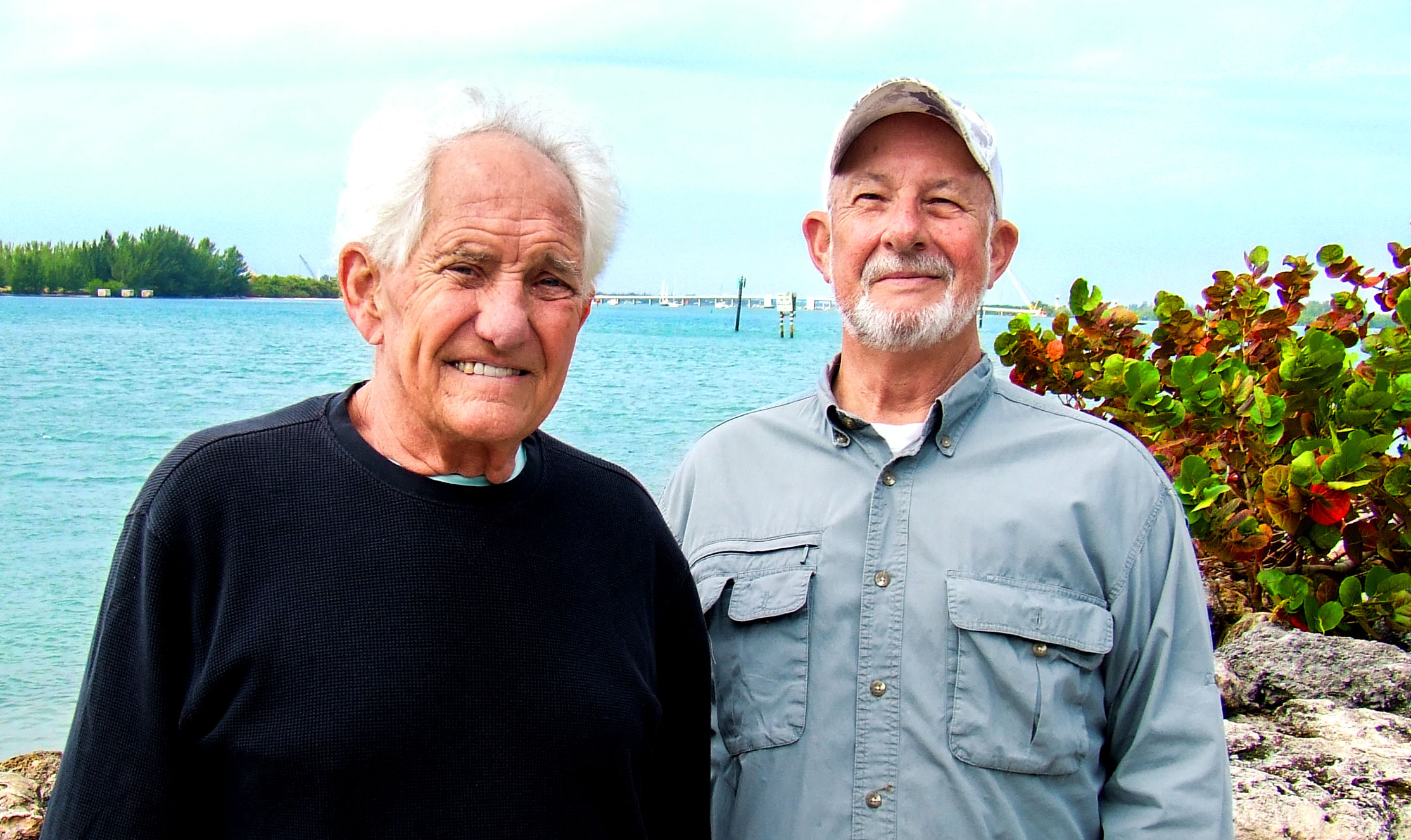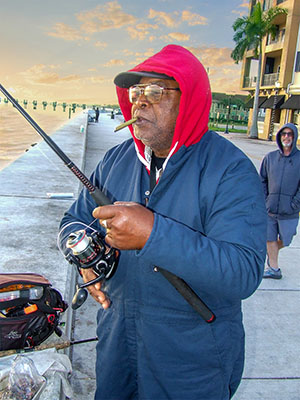HOOKED

mate, Fort Pierce native John Rohm. On a good day the pair may return with upwards of 700 pounds of king or Spanish mackerel. WHITNEY JOSEPH
Fort Pierce anglers are keeping it reel
BY WHITNEY JOSEPH

It takes a special kind of discipline to wake up in time to watch the sun come up over that lucky spot on the water. Lucky for the fisherman, that is, not for the fish. But that’s exactly what countless men and women in Fort Pierce have been doing for generations.
Indiana native, retired public school teacher and author Terry Howard is among them. He’s a commercial fishing captain who has been living in Fort Pierce since 1972. At 74, he still spends most days on the water, fishing his 24-foot diesel-powered Stapleton boat named Miss Fannie, in honor of his daughter.
